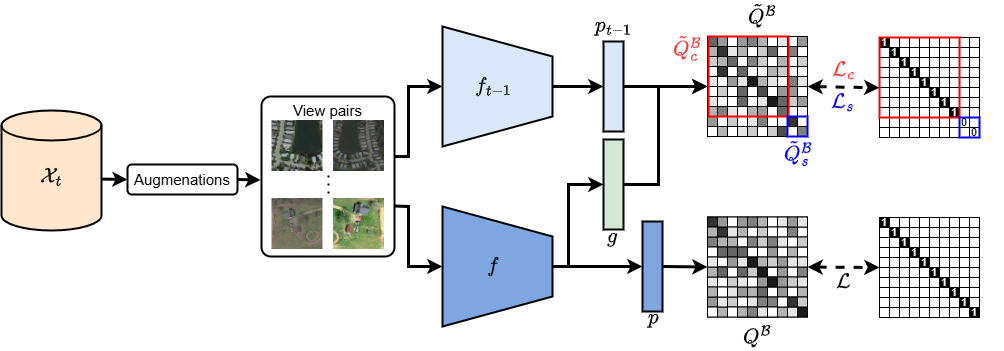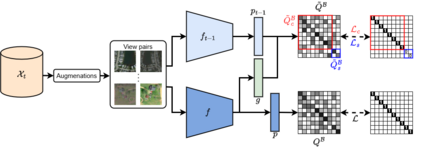Continual self-supervised learning (CSSL) methods have gained increasing attention in remote sensing (RS) due to their capability to learn new tasks sequentially from continuous streams of unlabeled data. Existing CSSL methods, while learning new tasks, focus on preventing catastrophic forgetting. To this end, most of them use regularization strategies to retain knowledge of previous tasks. This reduces the model's ability to adapt to the data of new tasks (i.e., learning plasticity), which can degrade performance. To address this problem, in this paper, we propose a novel CSSL method that aims to learn tasks sequentially, while achieving high learning plasticity. To this end, the proposed method uses a knowledge distillation strategy with an integrated decoupling mechanism. The decoupling is achieved by first dividing the feature dimensions into task-common and task-specific parts. Then, the task-common features are forced to be correlated to ensure memory stability while the task-specific features are forced to be de-correlated facilitating the learning of new features. Experimental results show the effectiveness of the proposed method compared to CaSSLe, which is a widely used CSSL framework, with improvements of up to 1.12% in average accuracy and 2.33% in intransigence in a task-incremental scenario, and 1.24% in average accuracy and 2.01% in intransigence in a class-incremental scenario.
翻译:暂无翻译





